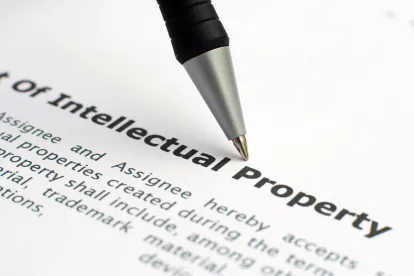Reversing the Copyright Royalty Board’s (Board) determination of a revised rate structure governing musical works, the US Court of Appeals for the District of Columbia Circuit concluded that the Board reached a final structure without providing adequate notice. George Johnson v. Copyright Royalty Bd., Case No. 2019-1028 (D.C. Cir. Aug. 7, 2020) (Millett, J.).
Every five years, the Board holds a proceeding to determine the royalty rate and terms for reproducing and distributing musical works, where interested stakeholders are permitted to present evidence and argument. At issue in Johnson is the Board’s decision, made after a five-week evidentiary hearing, setting the compulsory rate for the right to reproduce and distribute recordings of copyrighted musical works, known as a mechanical license, through streaming services for the period of January 1, 2018, to December 31, 2022.
Before the Board’s determination, depending on the type of service provided, the service provider owed a royalty based on a formula that considered two factors: (1) the service provider’s revenue associated with the particular offering, known as the “revenue prong,” and (2) the royalties paid by the service provider to sound recording copyright holders, known as the “total content cost prong.” For some streaming service offerings, the royalty was subject to a mechanical floor, and for some, the total content cost prong was subject to a cap. The Board’s final determination uncapped the total content cost prong and decided to phase in, for all categories over five years, a 15.1% revenue rate and a 26.2% total content cost rate, both higher than prior rates. Streaming services Amazon, Google, Pandora and Spotify, along with copyright owners and pro se songwriter George Johnson, appealed various aspects of the ruling.
On appeal, the challenges ran the gamut of administrative arguments: among others, that the Board’s decision was improperly retroactive, that the Board failed to give proper notice before settling on the rate structure in its final determination and fixed rates arbitrarily and capriciously, that it rejected certain evidence without an adequate explanation, and that it made certain changes to its decision without statutory authority to do so.
Although the D.C. Circuit found most of these arguments unavailing, it was convinced of a few, warranting remand to the Board for further proceedings. Primarily, the Court concluded that the Board failed to provide proper notice that it would uncap the total content cost prong combined with a significant increase in the mechanical royalty license rate. Specifically, the Court held that the Board’s ultimate rate structure, while adopting pieces from various proposals (some of which were never even offered at or before the hearing), was not within the zone of reasonably contemplated outcomes. By eliminating the cap on total content cost for all categories and increasing the royalty rates, the mechanical royalty licenses would be subject to the copyright owners’ unchecked market power.
The D.C. Circuit found two other errors. First, the relevant stakeholders had a settlement history from which the Board could draw conclusions regarding an appropriate rate structure. Nonetheless, the Board refused to consider one such settlement without evidence of the parties’ subjective intent. This, said the Court, was an inadequate basis for the Board to reject relevant evidence.
Second, the D.C. Circuit found that the Board’s post-decision change to the definition of “Service Revenue,” which was important for setting rates, was also flawed. Stepping through the Board’s limited statutory authority, the Court found that Congress did not grant the Board the power to change its decision under the circumstances presented, i.e., absent a rehearing request under “exceptional circumstances” or in the limited capacity to correct clerical, non-substantive efforts.
Finally, the Court declined to affirmatively decide whether the Board met its mandate of advancing the statutory balancing between copyright availability and appropriate compensation.




 />i
/>i

